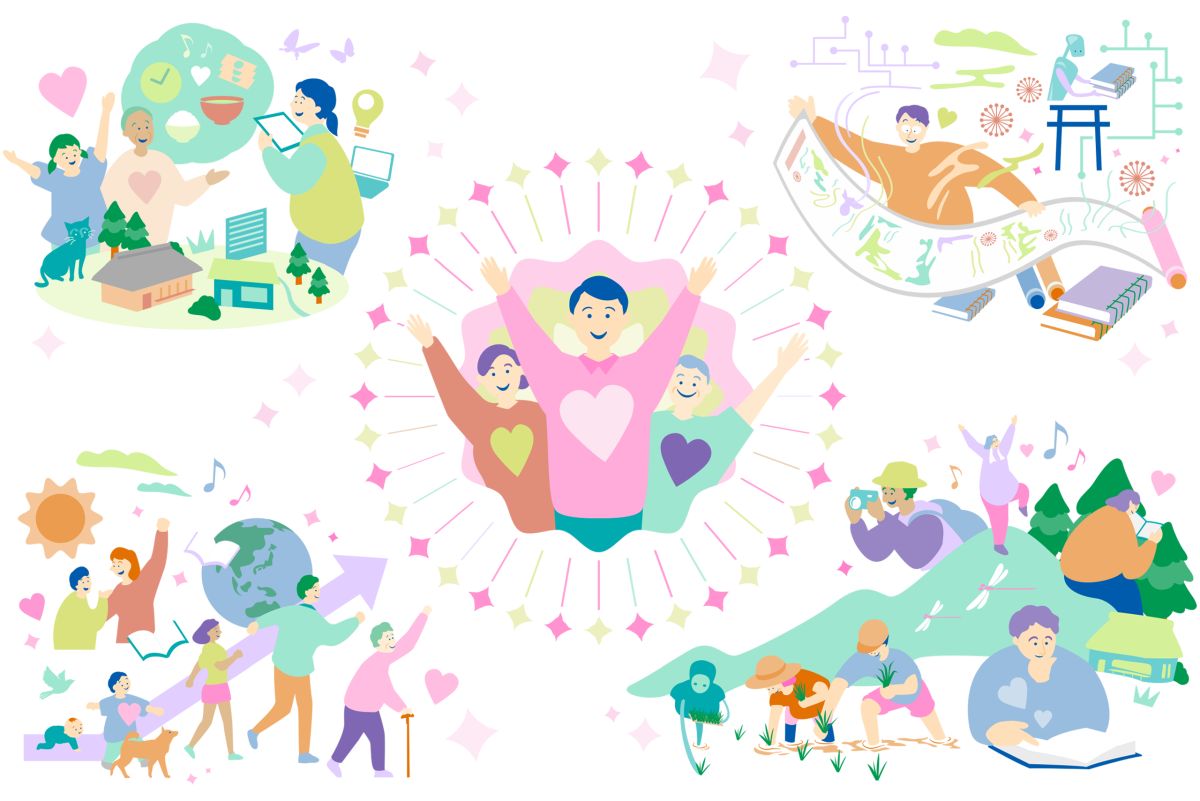Human Intelligence
What is Human Intelligence?

Artificial intelligence (AI) technologies are developing rapidly, and some forecast that AI will surpass human intelligence (singularity) in the near future. However, the goal of Society 5.0 is to allow people to live more happily and comfortably, and the pursuit of the value of living for humans becomes all the more important as AI evolves further and further. The theme of human intelligence is about developing innate human abilities by introducing the latest data science techniques based on a traditional humanities approach.
Research Theme: Human Intelligence
What are students expected to learn?
Students learn about the use of innate human abilities (logicality and sensibility) in various scenes and activities while looking at how art activities, from classic to contemporary, can be digitally archived, how AI can be utilized to create new forms of art, and so on. At the same time, they look at the relationship between innate human abilities and cultural behavior, and explore the meanings and challenges of enhancing innate human abilities. In addition, they learn the mathematical and statistical techniques required to analyze diverse and complex archived information. Building upon the above, they carry out research to create new knowledge and value contributing to the creation of a human-centric society where all people can lead comfortable lives by analyzing various challenges faced by Society 5.0.
What kind of people does the program aim to nurture?
The program aims to develop human resources who can create new knowledge and value for human cultural behavior by enhancing the innate human abilities (logicality and sensibility) required to make integrated use of diverse and complex archives.
Career prospects after completing the program
Students can gain employment with companies in many different fields that require logicality and sensibility, governments, social education facilities, companies that develop learning materials, publishing companies, NPOs, international organizations, and social welfare organizations, and as book/video editors, town managers, etc.
